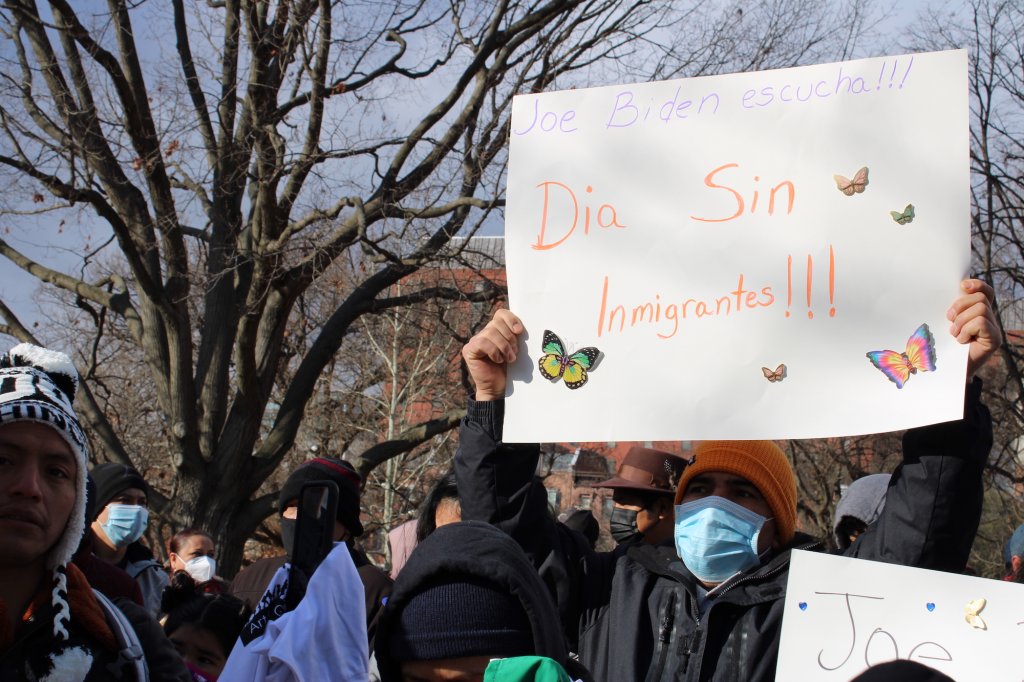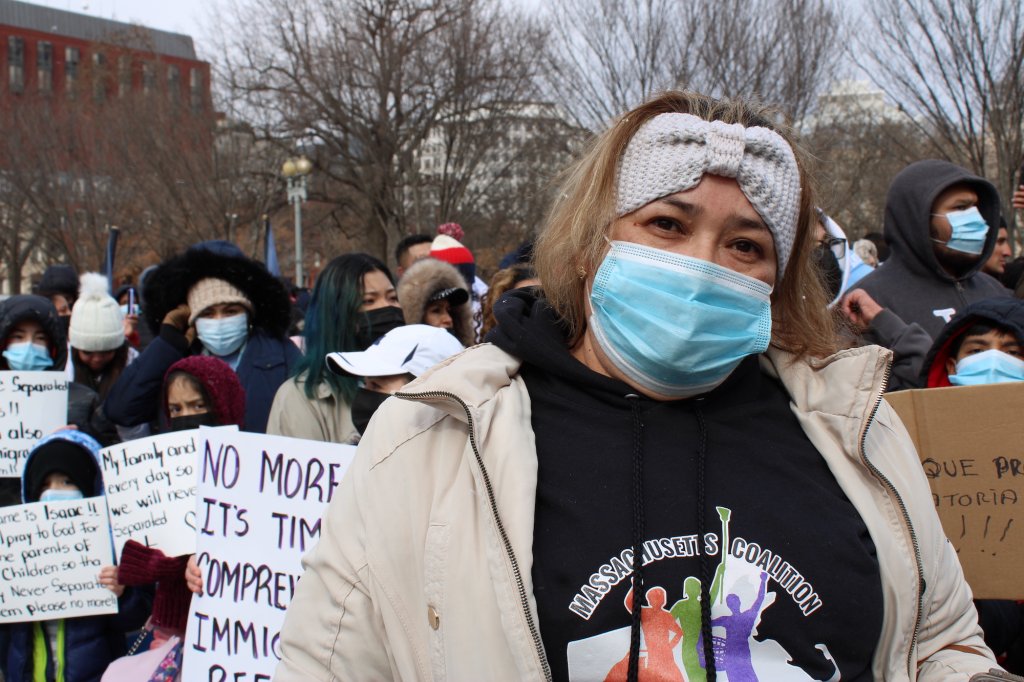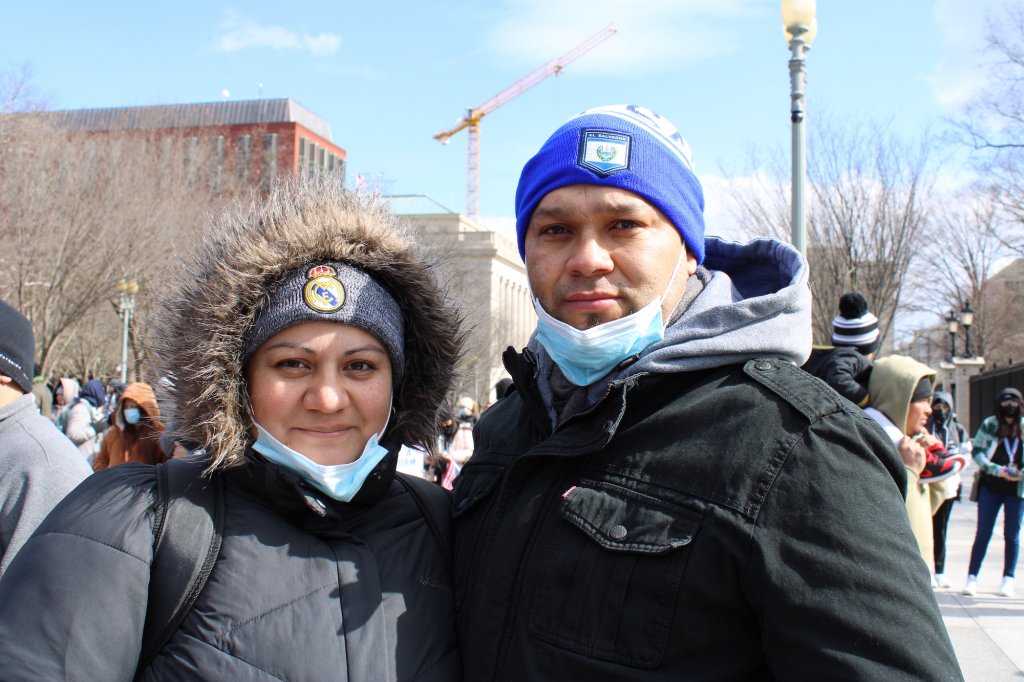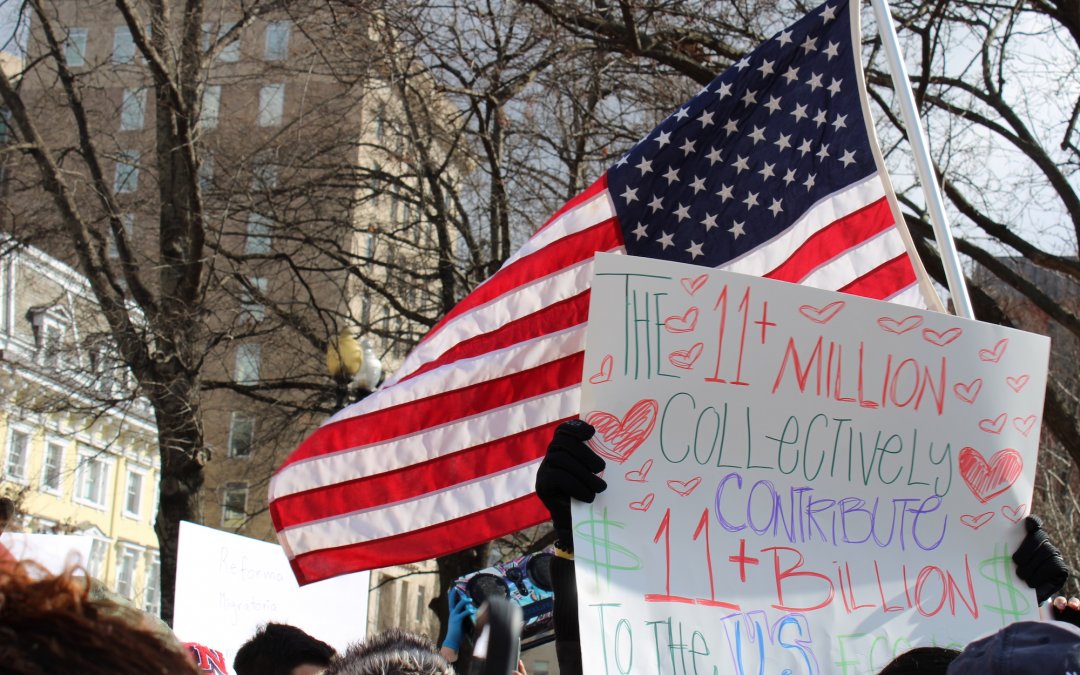WASHINGTON – When Evelyn Marroquin went to work last week at Montgomery County Public Schools, she walked up to her employers and told them that she would be out next Monday. “Ah,” they said, “It must be because of the Super Bowl.”
But this wasn’t about a game.
Marroquin pulled out her phone, scrolling through TikTok until she found the account of Carlos Eduardo Espina. She handed the device to her supervisors.
“I saw Carlos Espina when he released that TikTok, and he said for us to support him,” said Marroquin about the activist whose platform of over two million followers had launched a national campaign for Valentine’s Day to be a #DayWithoutImmigrants. “I thought, why not, why not make the effort if we don’t lose anything in doing it. We lose a lot if we don’t,” she said.
After Espina’s TikTok begat a Facebook page where 94.6 thousand immigrants vowed to stay home from work and not send their kids to school on Monday, hundreds of people decided to go one step further and take their demands for immigration reform straight to the White House.

The rally came together through a viral Facebook page that spread the #DayWithoutImmigrants message, telling people to stay home from work and school on Monday. (Ali Bianco/MNS)
“My husband’s mother died a year ago, and he couldn’t go visit her. She died of COVID,” said Marroquin about her fear of not being able to re-enter the country if she left. “So we are supporting this campaign because we want something to happen, something that was promised to us at the beginning but no president has done up to now.”
Bearing Salvadoran, Mexican, American flags and more, protestors hailing from as nearby as Northern Virginia to as far as California gathered at Lafayette Park to rally for pathways to citizenship. The campaign chose Valentine’s Day to increase awareness of the importance of immigrant labor in the American economy, especially during the pandemic where many immigrants served as essential workers.
“We need action because our community is made up of working people who pay taxes and deserve citizenship,” said Maria Alejandra Ponciano, one of the organizers behind the Day Without Immigrants campaign. “All of us are essential; it can’t be that we are essential but also deportable.”
Several guest speakers shared their experiences through a megaphone, some as part of an immigrant rights organization like Cosecha and others as Latin musicians, playing cumbia songs and leading chants for citizenship and immigrant rights. Me gusta la lima, me gusta el limón, pero no me gusta la deportación!
“I’ve been a part of this movement for two years because I’m tired of this oppressive system,” said Dominga Cortes Olan, a member of Cosecha and guest speaker at the protest. “This system takes everything from you, even your health because you work so many hours to be able to survive. But it wasn’t the movement that brought me here. It was me – my courage.”
The rally called on Democrats to create a pathway to citizenship for many undocumented immigrants who fear that they might be deported, losing their ties with their families and their lives in the U.S.
“I have lived here for 21 years,” said Cortes Olan. “I’ve left my money, my health, my whole life and kids are here. If I get deported, what do I tell my son? This is the only place he’s ever known.”

Mayra Elizabeth Molina rode a bus for nearly 8 hours from Boston to D.C. to participate in the protest in front of the White House (Ali Bianco/MNS)
Some immigrants who are domestic workers can have their lack of legal status held against them, explained Mayra Elizabeth Molina, a member of Cosecha and a participant in Monday’s protest.
“I realized with different nannies or people that worked cleaning houses that sometimes people would take their documents away, or if you leave the house people threaten to call immigration services,” said Molina, who is a domestic worker in Boston. “Unfortunately, I don’t have any immigration status for now, but I think that makes me stronger and makes me want to fight for this.”
A pathway to citizenship would also provide relief to immigrants who are in the U.S. under Temporary Protected Status or DACA, which can come with an expiration date according to immigration attorney Luis Canales who participated in Monday’s protest.
“It’s time for them to pass something more permanent, because DACA and TPS are temporary,” Canales said. “People need permanent residency so they can feel calm, work well and without the worry that they are going to be deported or that every two years they are told their papers have expired.”

Carlos Eduardo Espina, a popular TikToker with over 2 million followers, takes selfies and posts TikToks with the protest crowd (Ali Bianco/MNS)
When asked about why he decided to start this campaign and create a call to action, Espina shared the disillusionment that he and many other immigrants felt with the lack of immigration reform in President Biden’s first year. Espina explained that although he began the social media movement, it was his followers and many other people who made it into a larger national campaign.
“In this moment, I feel really happy that despite the cold, despite it being a Monday, a work day, there’s so many people here and we are going to keep moving forward with a bigger push,” Espina said.
While many chose to show their support at the White House, other protests were also planned in major cities like New York, Houston and Miami. Rep. Alexandra Ocasio Cortes (D-N.Y.), Rep. Ilhan Omar (D-Minn) and several more Congress members and senators have voiced their support for the campaign, according to Latino Rebels.

Evelyn Marroquin and her husband took the train from Laurel, Maryland to join the campaign (Ali Bianco/MNS).
When Marroquin showed her employers the video of Espina on TikTok, they asked her where she was from. The Maryland bus driver responded that she is from El Salvador. They said “ok, go support the movement.”
I asked Marroquin how she felt about not celebrating Valentine’s Day with her husband. She told me that she explicitly told her husband to not buy her a thing. There were more days and hours for them to celebrate, but Monday wasn’t just about them.
“I think it’s time for us to raise our voices and say we need change. We have been working this whole time, paying taxes,” she said. “I have a house and with TPS, I’m scared. If I lose my TPS status and I get deported, I lose my kids, I lose my house, I lose everything. So, I think it’s time for us to say something.”


